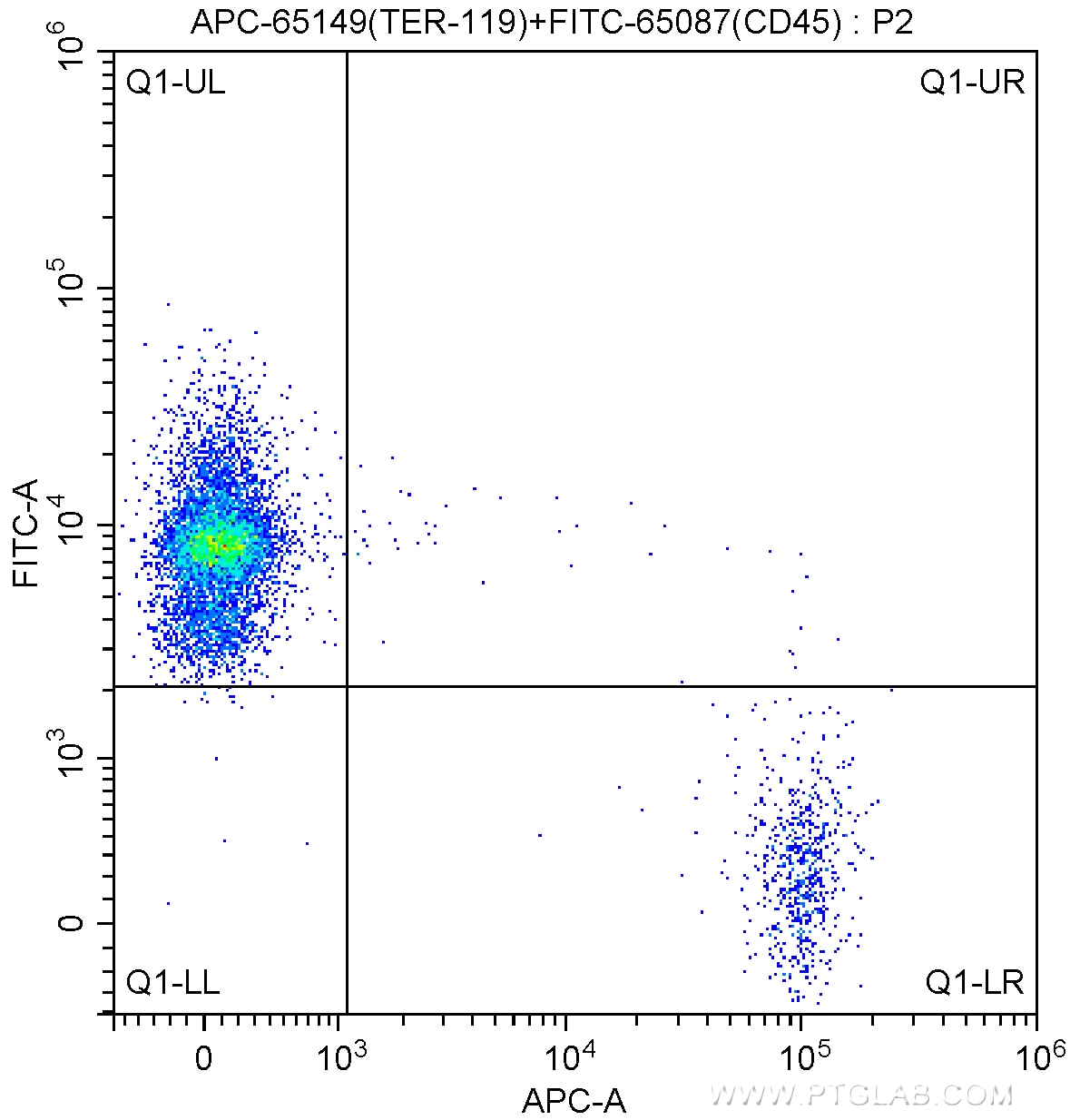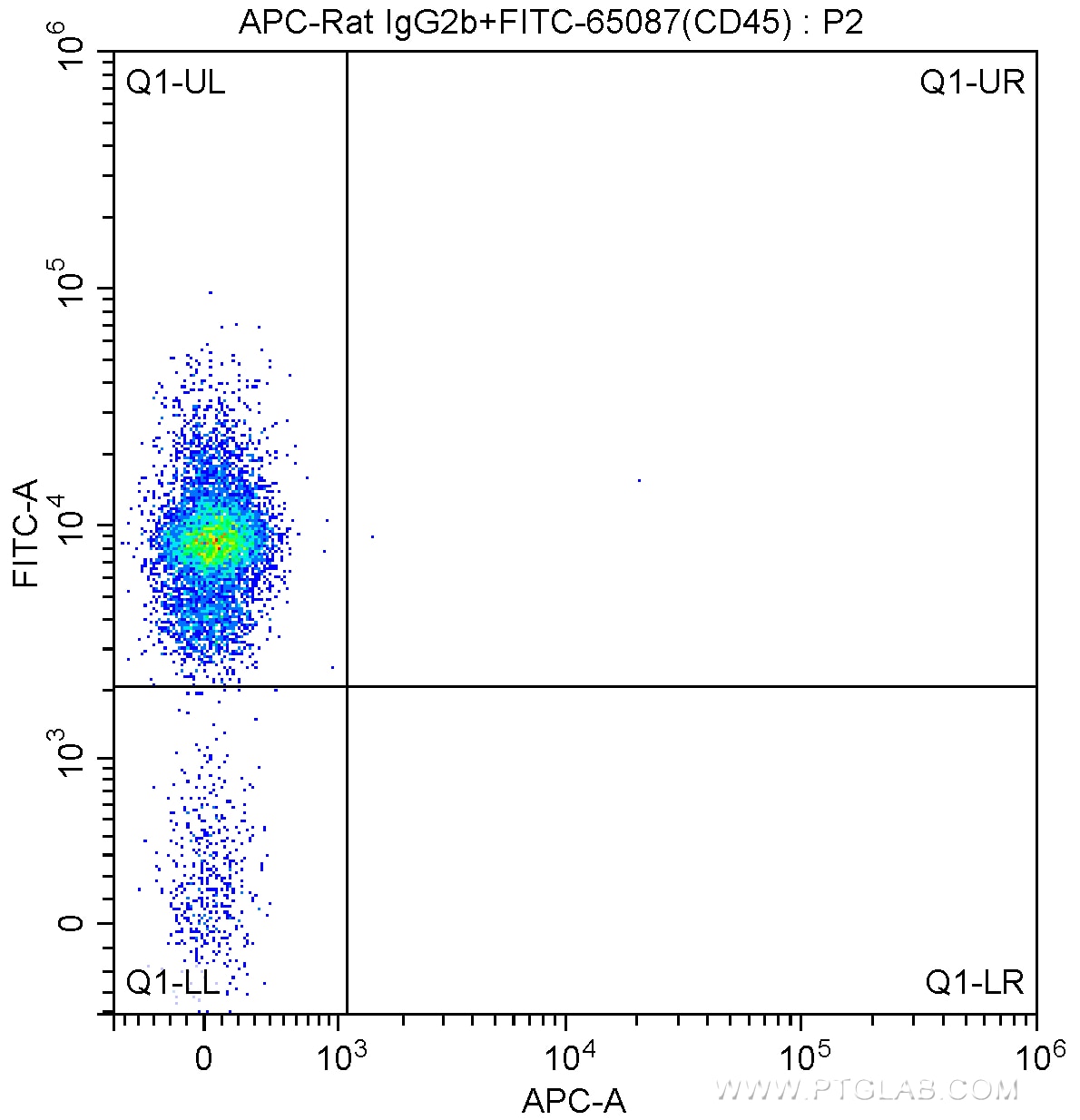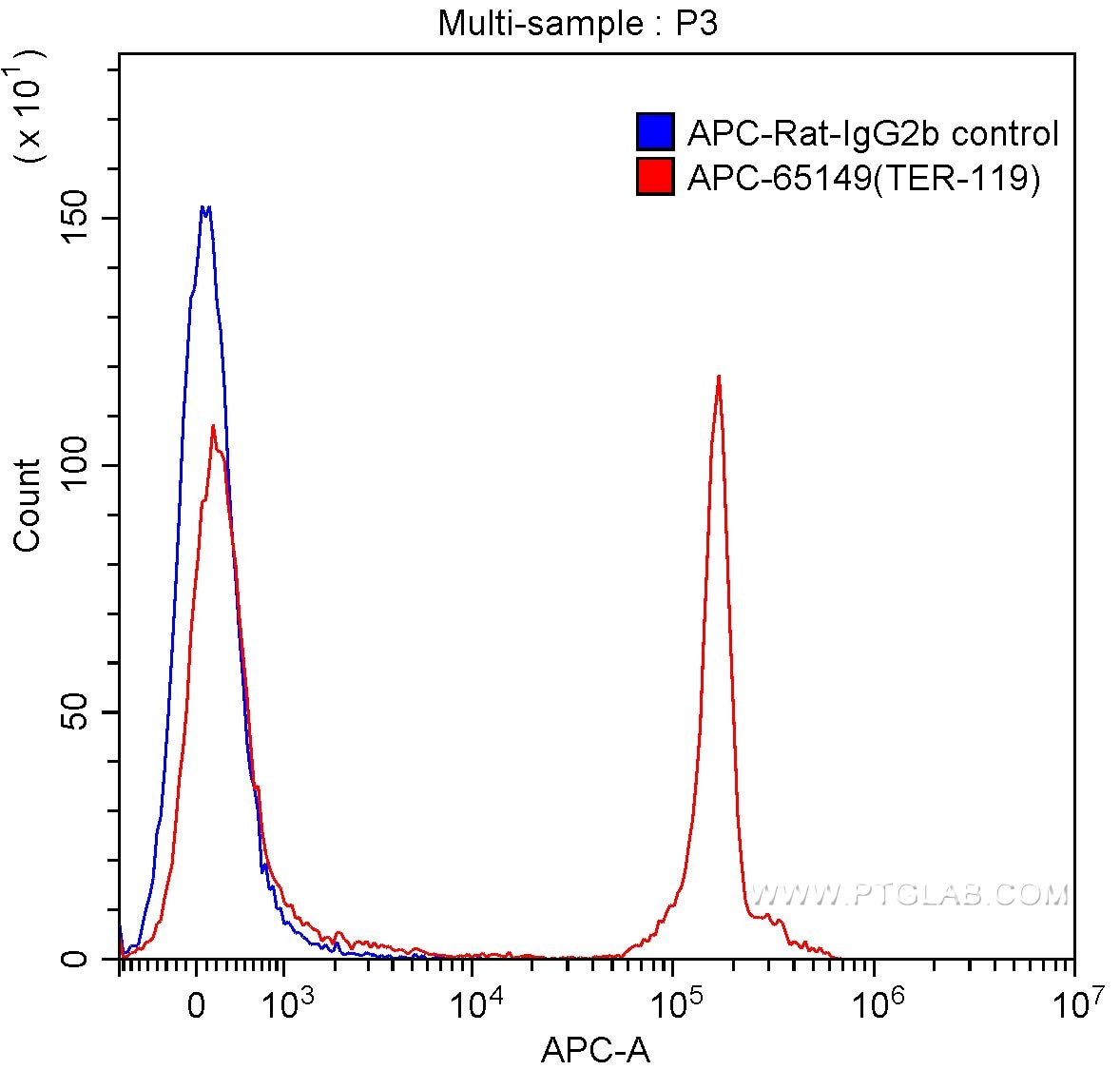Anticorps Monoclonal anti-TER-119
TER-119 Monoclonal Antibody for FC
Hôte / Isotype
Rat / IgG2b
Réactivité testée
souris
Applications
FC
Conjugaison
APC Fluorescent Dye
CloneNo.
TER-119
N° de cat : APC-65149
Synonymes
Galerie de données de validation
Applications testées
| Résultats positifs en cytométrie | cellules médullaires de souris, |
Dilution recommandée
| Application | Dilution |
|---|---|
| This reagent has been tested for flow cytometric analysis. It is recommended that this reagent should be titrated in each testing system to obtain optimal results. | |
| Sample-dependent, check data in validation data gallery | |
Informations sur le produit
APC-65149 cible TER-119 dans les applications de FC et montre une réactivité avec des échantillons souris
| Réactivité | souris |
| Hôte / Isotype | Rat / IgG2b |
| Clonalité | Monoclonal |
| Type | Anticorps |
| Immunogène | Cellules de foie fœtal de 14 jours de souris C57BL/6 |
| Nom complet | lymphocyte antigen 76 |
| Symbole du gène | Ly76 |
| Identification du gène (NCBI) | 104231 |
| Conjugaison | APC Fluorescent Dye |
| Excitation/Emission maxima wavelengths | 650 nm / 660 nm |
| Forme | Liquide |
| Méthode de purification | Purification par affinité |
| Tampon de stockage | Tampon à base de phosphate avec azoture de sodium à 0,09 % et gélatine à 0,1 %, pH 7,2. |
| Conditions de stockage | Stocker à une température comprise entre 2 °C et 8 °C. Éviter toute exposition à la lumière. |
Informations générales
TER-119 is a mouse erythroid lineage-specific monoclonal antibody that reacts with erythroid cells at differentiation stages from early proerythroblast to mature erythrocyte, but not with cells showing typical erythroid blast-forming unit (BFU-E) and erythroid colony-forming unit (CFU-E) activities (PMID: 1975515; 10848813). TER-119 recognizes a 52-kDa molecule on erythrocyte membranes (PMID: 10848813). TER-119 antigen is a molecule associated with cell-surface glycophorin A but not with glycophorin A itself (PMID: 10848813).
Protocole
| Product Specific Protocols | |
|---|---|
| FC protocol for APC TER-119 antibody APC-65149 | Download protocol |
| Standard Protocols | |
|---|---|
| Click here to view our Standard Protocols |




